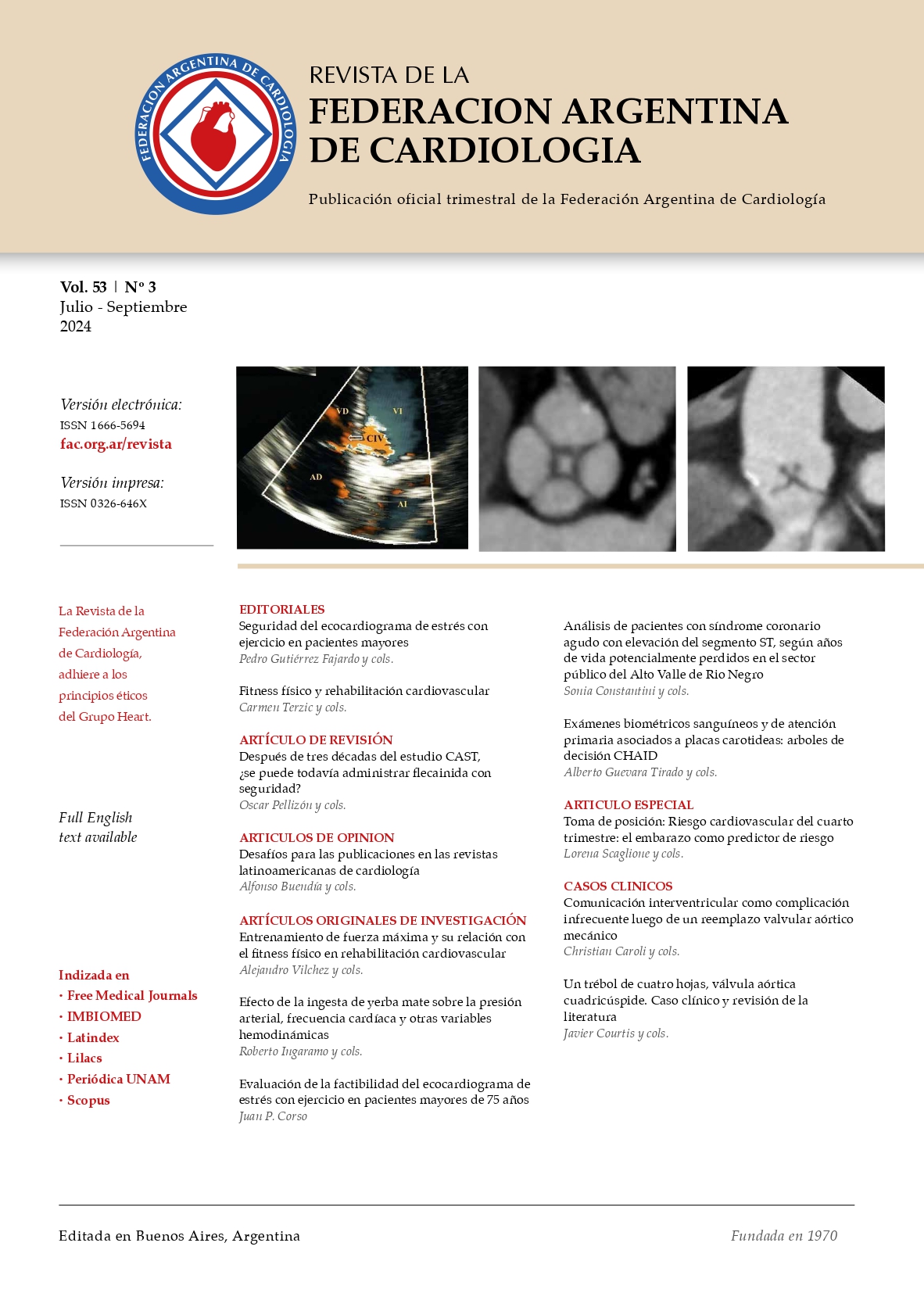After three decades of the CAST study, can flecainide still be administered safely?
Keywords:
Flecainide, Ventricular arrhythmias, Supraventricular tachycardia, Canalopathy, Ischemic cardiomyopathyAbstract
Flecainide is an IC antiarrhythmic drug (AAD) that was approved for the treatment of sustained ventricular tachycardia (VT) and subsequently for rhythm control of atrial fibrillation (AF). They also play an important role in the treatment of idiopathic ventricular arrhythmias. Following the results of the Cardiac Arrhythmia Suppression Trial study (CAST), flecainide were contraindicated in patients with ischemic and structural heart disease, due to their pro-arrhythmic effect. Recent studies carried out on patients with chronic coronary heart disease and/or residual ischemia have shown a good safety profile. In addition, other studies have shown excellent efficacy in the absence of pro-arrhythmic effects of flecainide in patients with structural heart disease such as arrhythmogenic right ventricular cardiomyopathy (ARVC) and tachy-cardiomyopathy. The purpose of this review is to evaluate the appropriate use of flecainide in the different patient subgroups, in the light of the evidence and new diagnostic and therapeutic tools available.



